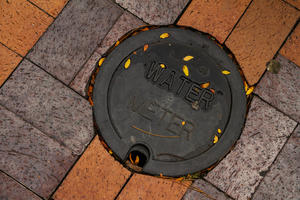Fats, oils and greases (FOG) can be found in the wastewater of commercial kitchens and can cause problems if they end up in our sewers. Businesses such as restaurants, caterers and takeaways are required by law to dispose of their FOG appropriately so we don’t end up with ‘fatbergs’ in our sewers – large clumps of hardened fat that can cause blockages.
Why should I have to think about FOG?
Any business that uses fats, oils and greases has a responsibility to dispose of them correctly, so they don’t end up in our sewer networks where they can cause damage. According to Anglian Water, around 80% of blockages are caused by or have an effect from FOG, and there are over 800 incidents or sewer blockages every day.
Thinking about your fats, oils and greases and where they end up can actually benefit your business. Not only does disposing of FOG incorrectly have a negative effect on our communities and environment, it can also directly affect the day-to-day running of your business. Large fatbergs can lead to internal and external flooding, road closures or loss of supply, meaning your business might have to close while the blockage is dealt with, which can sometimes take weeks. A fatberg the length of two football pitches was discovered in London and took nine weeks to clear, and Wholesalers spend millions of pounds a year on blockages alone.
Fatbergs can also lead to waste overflowing into our environment that can be toxic, so if your business is looking to become more sustainable, disposing of fats, oils and greases correctly is the first step.
Do fats, oils and greases have any value?
You can now sell your FOG so it can be reused to make biofuel (biodiesel) which can be used for energy production, as well as many more. The value of used cooking oil is £1.03 per litre1, so if you’re a restaurant that uses 100 litres of oil in a week, you could make an additional £103. That’s £5,356 a year!
Get in touch with your Wholesaler if you’re looking to sell your FOG - they can help you to find a reputable supplier.
What can my business do to stop FOG entering the sewers?
There are some very simple steps to follow to keep our sewers clear of fats, oils and greases that can turn into fatbergs:
- Put cooled FOG into a container and make sure it’s disposed of by a registered waste collection rather than pouring it down the sink while washing up. If you’re looking to sell it, contact your Wholesaler.
- Before washing, use a paper towel or cloth to wipe away any excess fats and put it in the bin instead.
- Sink strainers will catch any food scraps so they don’t end up contributing to blockages.
- Invest in equipment that will collect your FOG before it gets to the sewer, like grease traps and interceptors that can be installed inside or outside the property.
Where can I find out more information?
FOGwise, a coalition including Southern Water, Foodservice Equipment Association, Foodservice Consultant Society International, National Federation of Fish Fryers and British Water, has produced a downloadable guide for foodservice establishments.
The guide looks at where FOG comes from, the problems it can cause, the laws on FOG, how it can be managed and its role in climate action.
1. Correct at time of publishing


